New jail finance committee created by Monroe County councilors
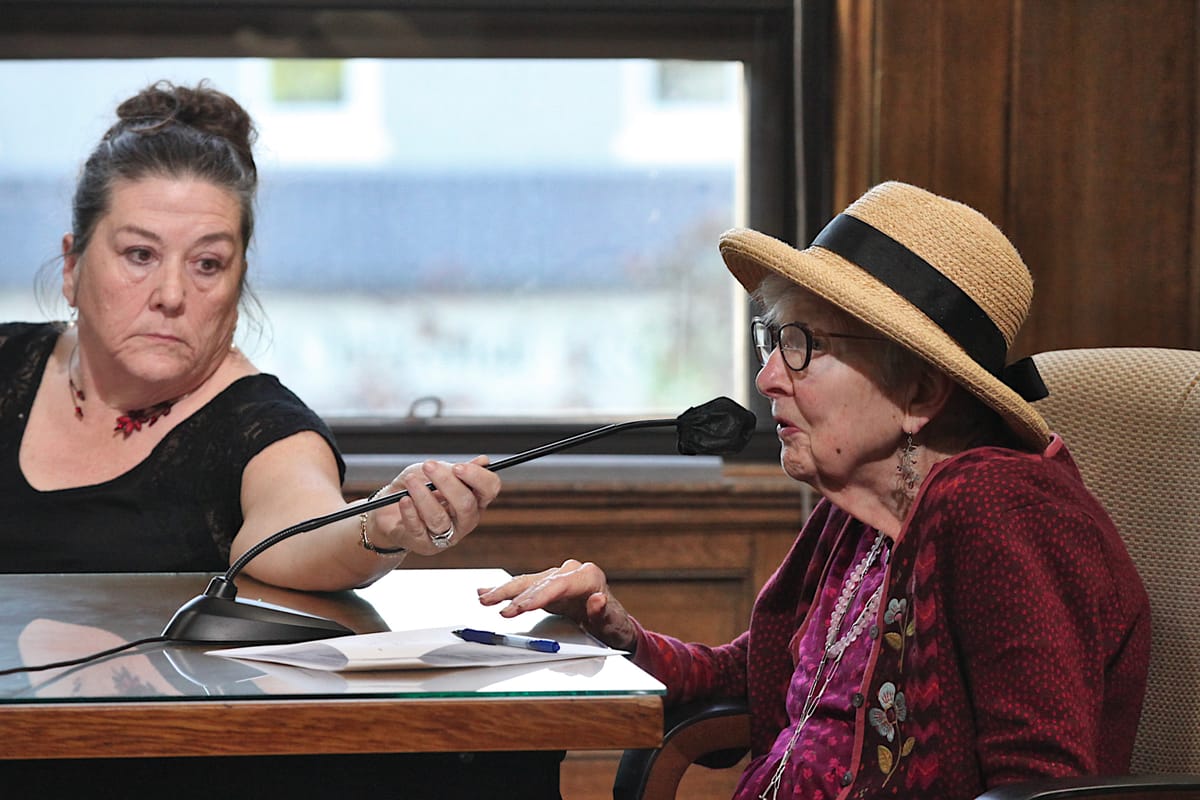
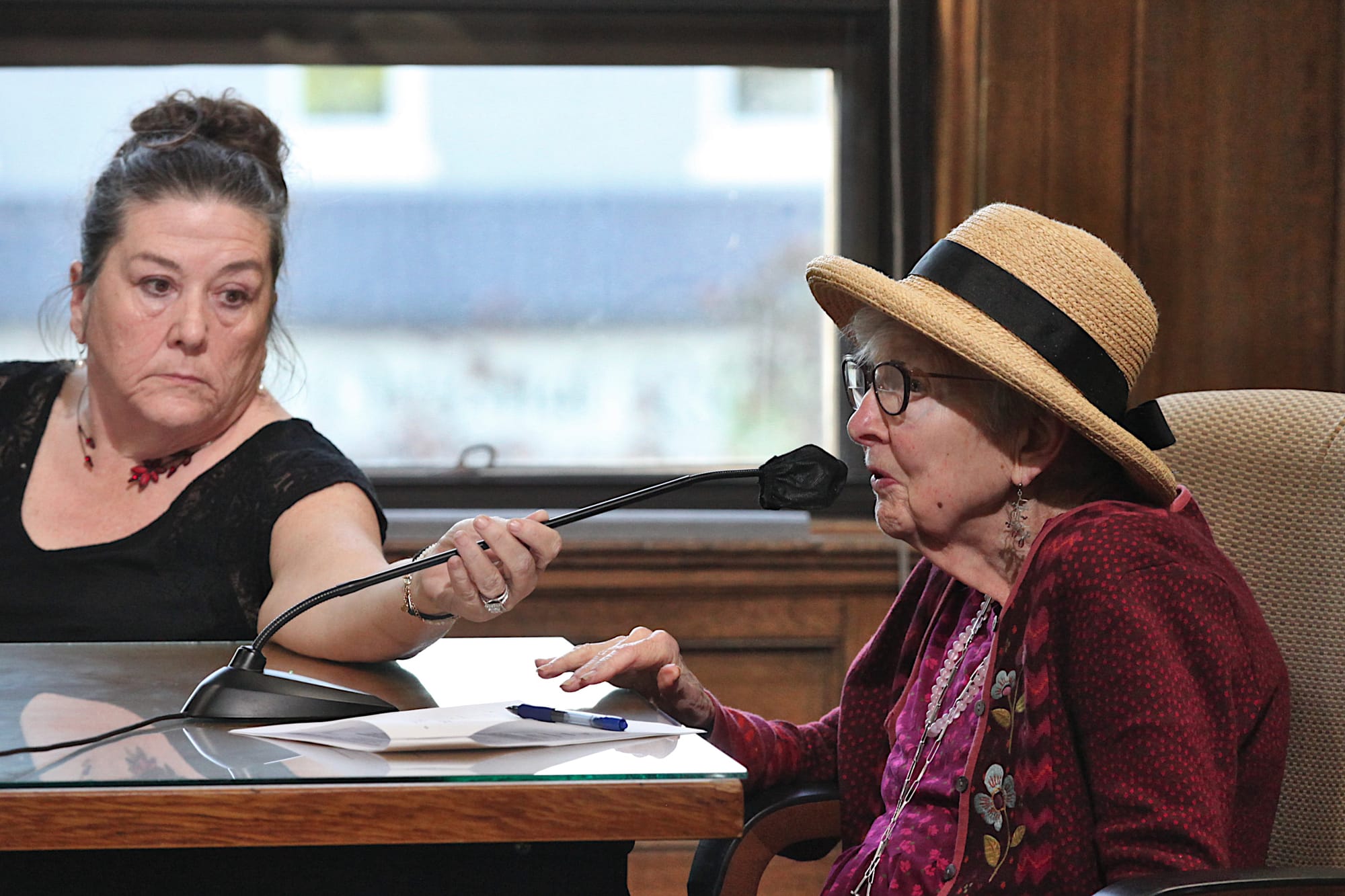
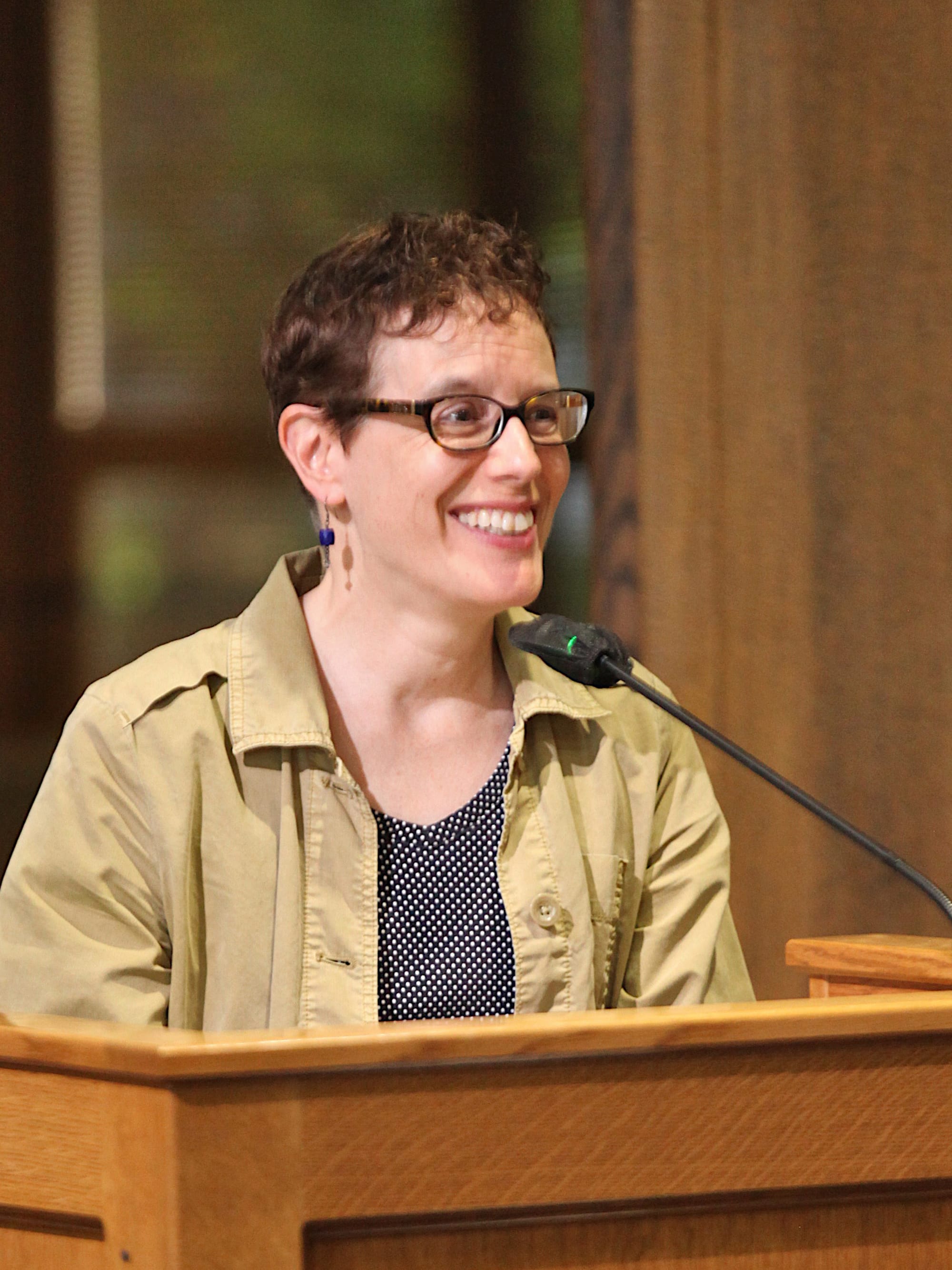
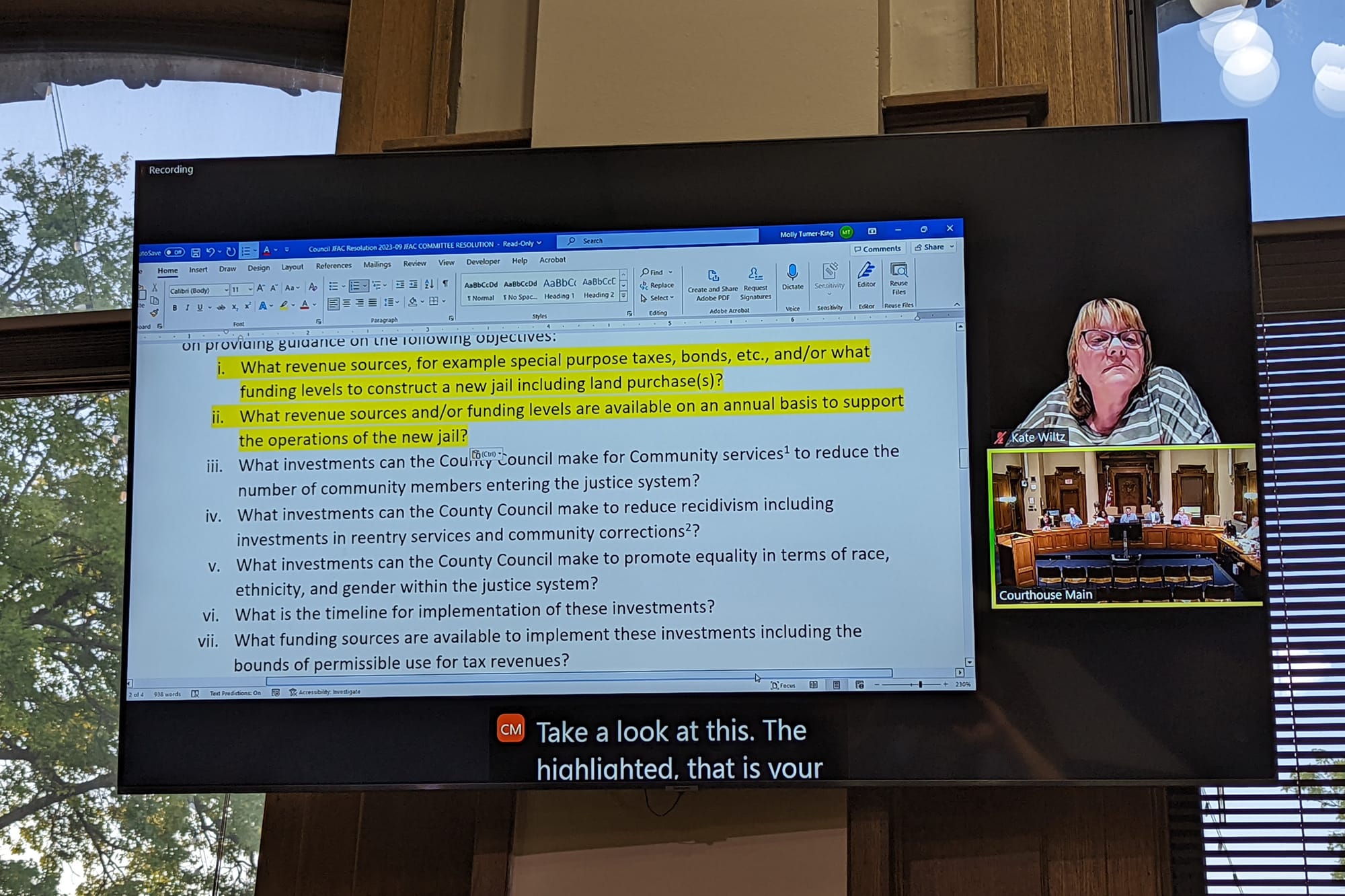
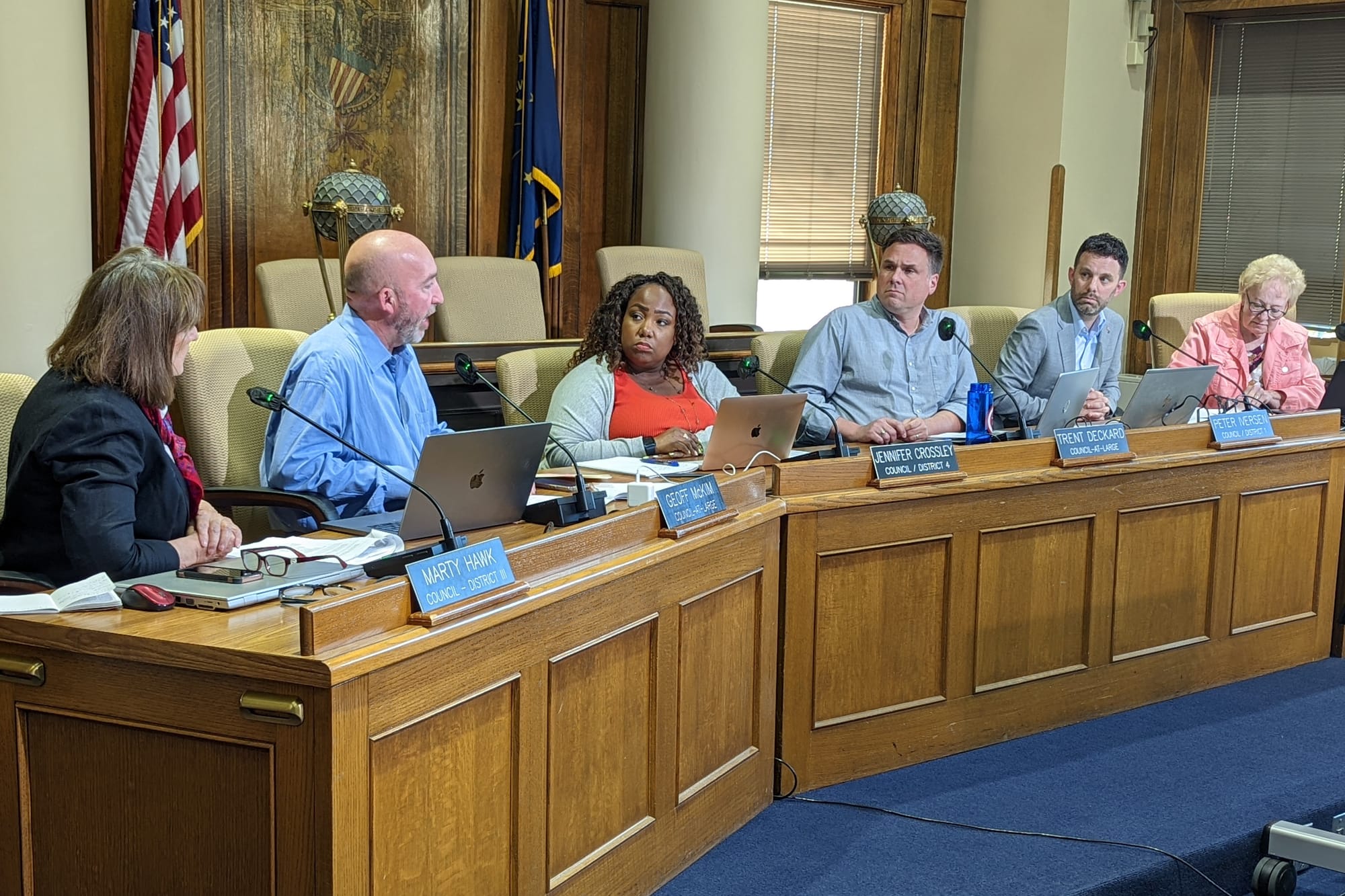
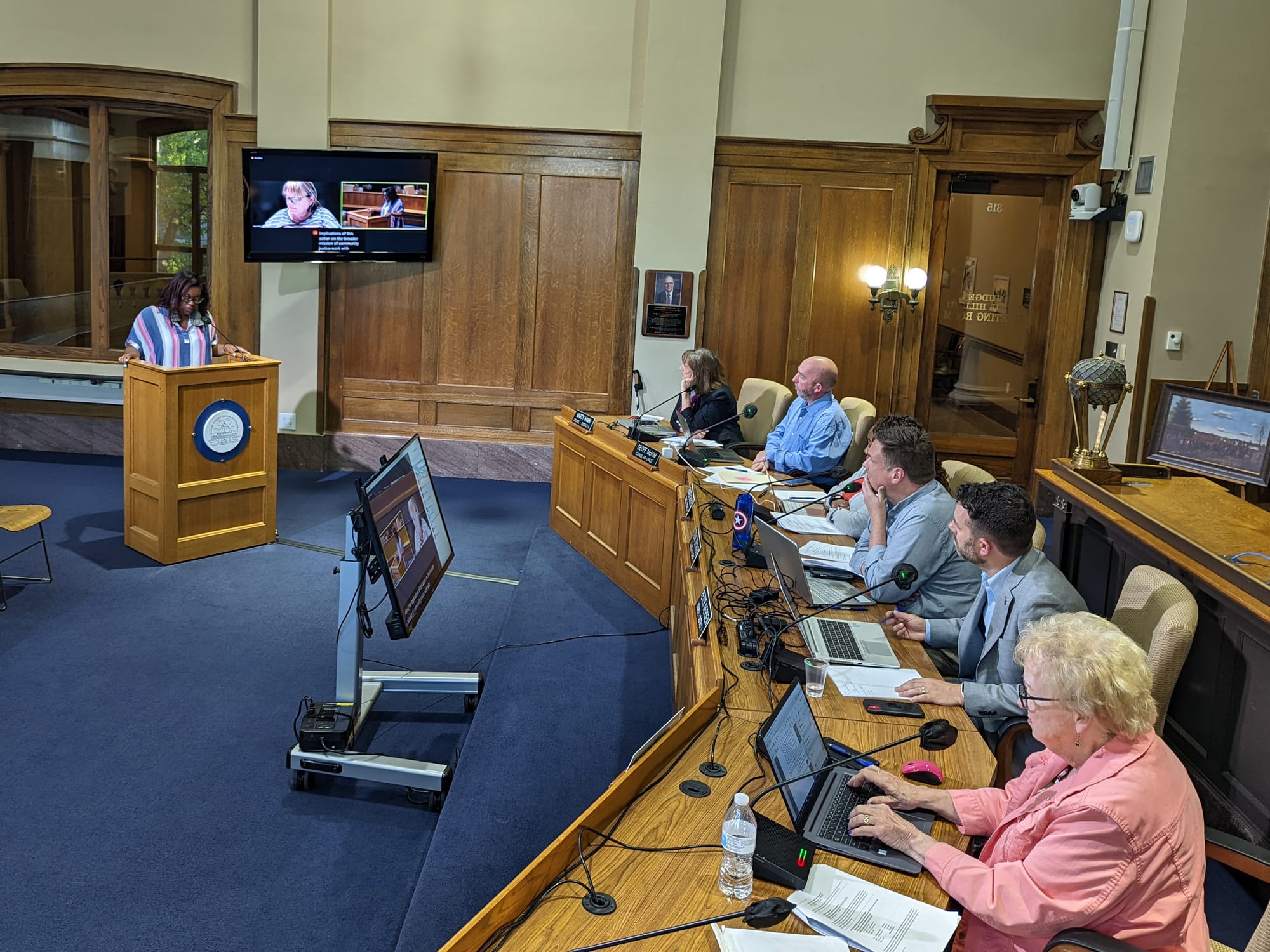
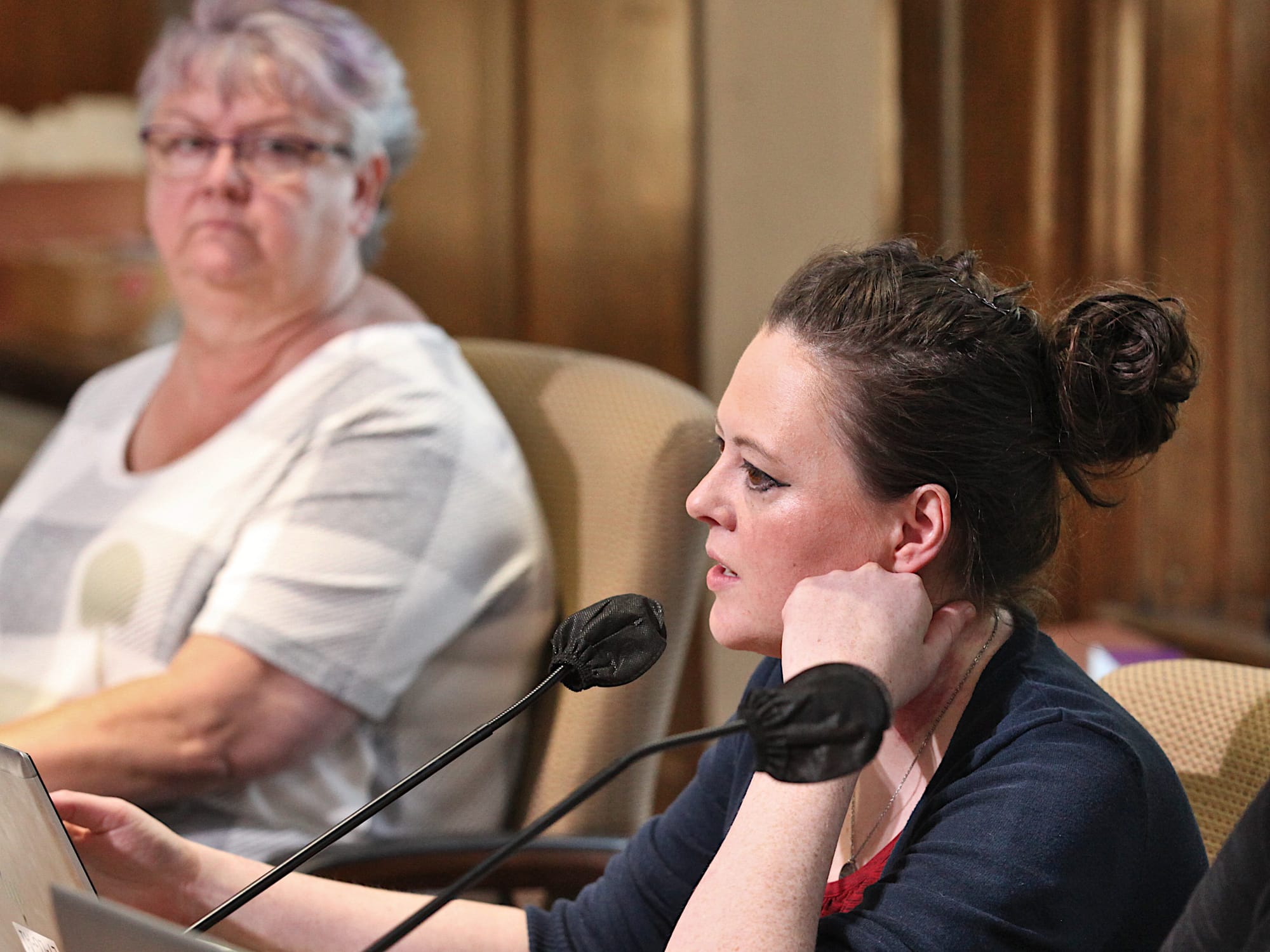
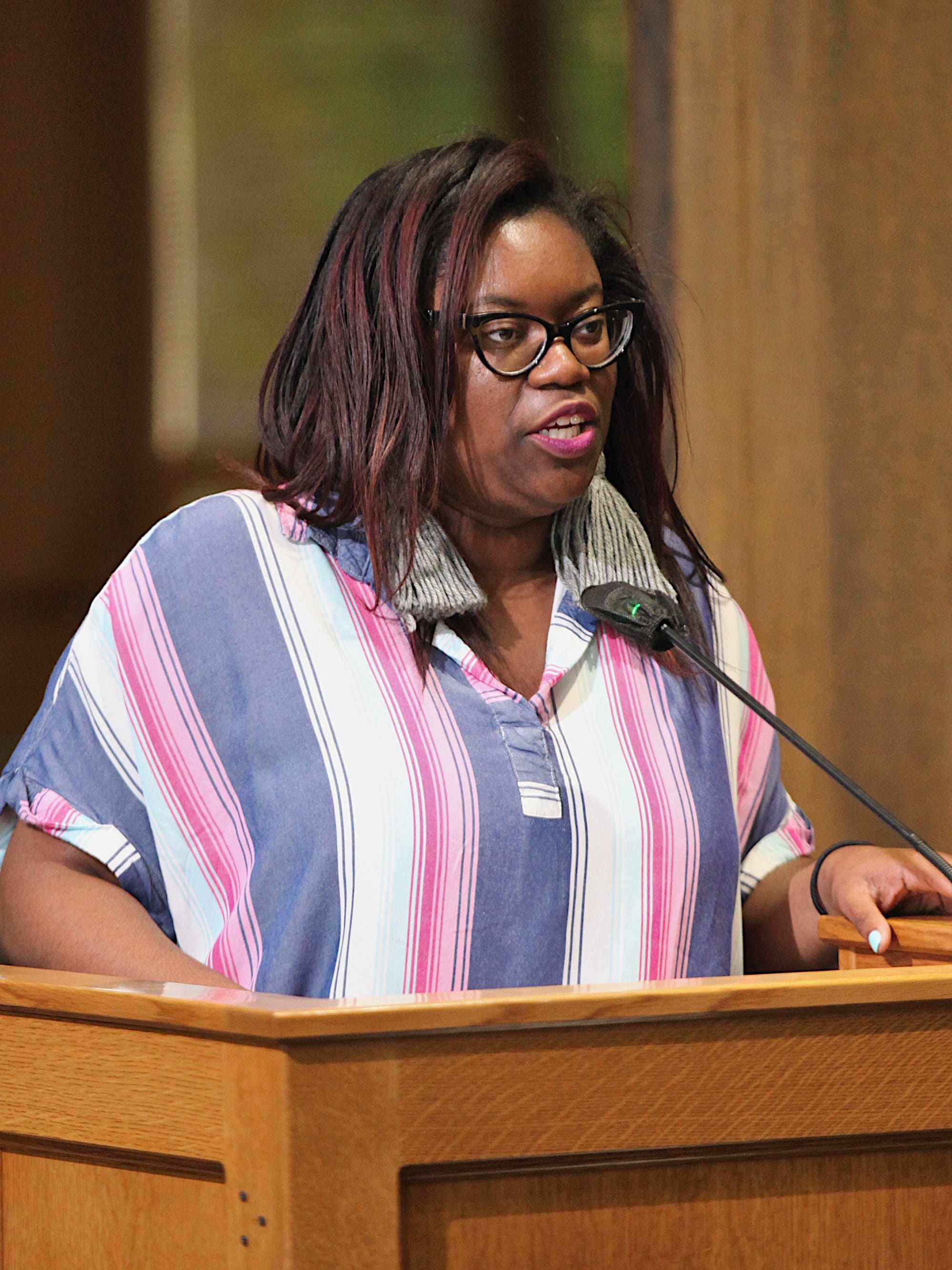
Two weeks after the idea was floated at a work session, the Monroe County council has established a new committee to focus on fiscal issues associated with the construction of a new jail.
The unanimous vote to create the justice fiscal advisory committee (JFAC)—consisting of three county councilors and 12 other ex officio members—came at the council’s regular meeting on Tuesday. The ex officio members don’t count towards the number needed for a quorum.
The word “fiscal” in the name of the new committee that has been formed by the county council reflects the fact that the council is the county’s fiscal body.
Any funding for a new jail facility would have to be approved by the seven-member county council, no matter what decisions are made by the three county commissioners about the location and size of a new jail facility.
The county council’s move to create the committee got support from the public mic during the meeting, in-person as well as on the Zoom video conference platform.
The ex officio members of the JFAC will be: a person with lived experience incarcerated at the Monroe County jail; a criminal judge; a civil judge; a representative from the prosecutor’s office; a representative from the public defender’s office; a representative from the sheriff’s office, a representative from a community behavioral health center like Centerstone; a member from the Bloomington police department; a representative from the Monroe County health department; a Monroe County commissioner; a representative from the city of Bloomington community and family resources (CFRD) department; and a member of the Bloomington city council.
For the county council, the creation of the committee was not controversial, even if its composition was the subject of considerable deliberation. An initially circulated draft resolution included as full members the 12 who were eventually settled on as ex officio members.
But as described in the resolution that was included in the county council’s meeting information packet, the membership of the committee included three county councilors, with no additional members.
The compromise was to opt for an expanded committee membership, but with the additional positions designated as ex officio.
The creation of the new county council committee comes after county commissioners three week ago suspended meetings of the full community justice response committee (CJRC).
The county commissioners had established the CJRC—with evolving membership, including some county councilors, judges, the sheriff, the public defender and the county prosecutor—to provide advice on how to respond to the work of two consultants. The consultants delivered their studies of Monroe County’s criminal justice system in June 2021.
The membership of the county council’s JFAC offers a contrast to the commissioner-created CJRC, in that the JFAC includes three members from city government. The lack of any city membership in the CJRC was a point of criticism for many observers of the CJRC’s work.
Speaking in favor of creating the committee from the public mic in the Nat U. Hill room of the county courthouse was Gloria Howell, who is secretary of the Monroe County Branch NAACP and director of the Neal-Marshall Black Culture Center at Indiana University.
Howell said, “We…commend you for continuing strategic conversations around community justice, despite the suspension of the community justice response committee.” Howell continued, “With broad public engagement, inclusion, and transparency, we encourage the county council as the fiscal body of county government to take the lead in continuing this important work in the public eye.”
Howell added, “Please use your influence and authority to speak up for the underrepresented, for those whose voices are not often heard, and to truly defend the rights of all, and ensure that your allocation of taxpayer dollars reflects these values.”
Also supporting the creation of the committee was former county commissioner Charlotte Zietlow, who said towards the start of her remarks, “I’m so sorry to be here. Because we should not be talking about this without the county commissioners present.” She added, “And, in fact, the county commissioners are going to ultimately be the ones who make the final decision on this issue.”
But Zietlow also said that the situation is complicated. She continued saying, “I’m here to encourage you…the fiscal body of the county…on a resolution of working out of this issue, working together with the county commissioners and all the other many, many parts of this complicated county system.”
Zietlow pointed to the role of the county council in county government: “You do hold the purse strings. And I know that very, very well—I ran into that many times.“ What she’d learned serving as a county commissioner, Zietlow said, was that “You have to work with people, if you’re going to get something done.”
Zietlow wrapped up saying, “And so I’m urging you to do what you’re intending to do. It seems to be a little radical, maybe at this point. But I think it’s one way we can move the needle. And I think it’s brilliant of you to come up with this suggestion.”
Bloomington city councilmember Isabel Piedmont-Smith spoke in favor of establishing the committee, saying that the size and composition of the committee is less important than the membership being “truly open to hearing public comment.” Piedmont-Smith said that the committee should offer public comment on every agenda item and not just once in a meeting.
Also speaking in support of the committee was former county attorney, Margie Rice. Jim Shelton who is a CASA (court appointed special advocate) also spoke in support of creating the JFAC. Shelton said, “I want to applaud you for stepping into this leadership role and taking this on—I think it was a very wise thing for you to do. And I have great hopes for it.”
The deliberations back and forth on the original resolution, which included just county councilors as members, reflected an uncertain mood among councilors about the membership. Some of the concerns expressed about a three-member committee included the idea that if any two of them wanted to meet with some community member, that would require public notice under Indiana’s Open Door Law.
Concerns about a larger committee included the idea that it might be a challenge to achieve a quorum to meet. Another concern was that by specifying a bigger roster of members, it might have the impact of limiting participation and input to the committee, because it might be perceived as exhaustive of the desired input.
After councilor Peter Iversen offered a motion in support of adding the 12 additional members, councilor Geoff McKim asked Iversen why: “I guess I am a little maybe confused or surprised at that motion, just because it seemed like the tenor of the discussion had been to affirm the simplification that was in front of us.”
Iversen replied, “I heard exactly the opposite! I heard that the tenor of the conversation was to be more representative and have a larger body.” Iversen said that he got the sense that while achieving a quorum might be a challenge, people were willing to work through that. Iversen said he made his motion to expand the membership because the deliberations he’d heard indicated to him “that’s the direction council was heading.”
When the vote was taken on adding 12 additional JFAC members, only Iversen and Jennifer Crossley supported the motion.
A middle ground was found when councilor Trent Deckard suggested that the additional members be added, but as non-voting members who would not count towards quorum. “What if we were to retain the original three composition in their original motion, and we were to designate the additional names that councilor Iverson’s motion has, with ex officio status.”
Deckard was chairing the meeting, filling in for council president Kate Wilz, who was participating on the Zoom video conferencing platform.
Deckard’s motion found unanimous support. Crossley called it a “healthy compromise.” Crossley said she would have preferred the additional people as full members, but said, “We are all working together. And I appreciate this amendment.”
Councilor Marty Hawk at one point asked for clarification of the committee’s role. Hawk asked Iversen: “Are you saying this entire group is going to bring the county council a budget to tell us how to vote? That’s ridiculous!”
Iversen responded to Hawk, “No, ma’am. The way that the…resolution is written is that they’re going to bring recommendations to the council. Nobody has the authority in Indiana statute to make the decisions that this body has.”
In its action on Tuesday night, the county council did not make appointments of its membership to the newly created JFAC. The county council’s representatives to the CJRC are Jennifer Crossley, Kate Wiltz, and Peter Iversen.




Comments ()